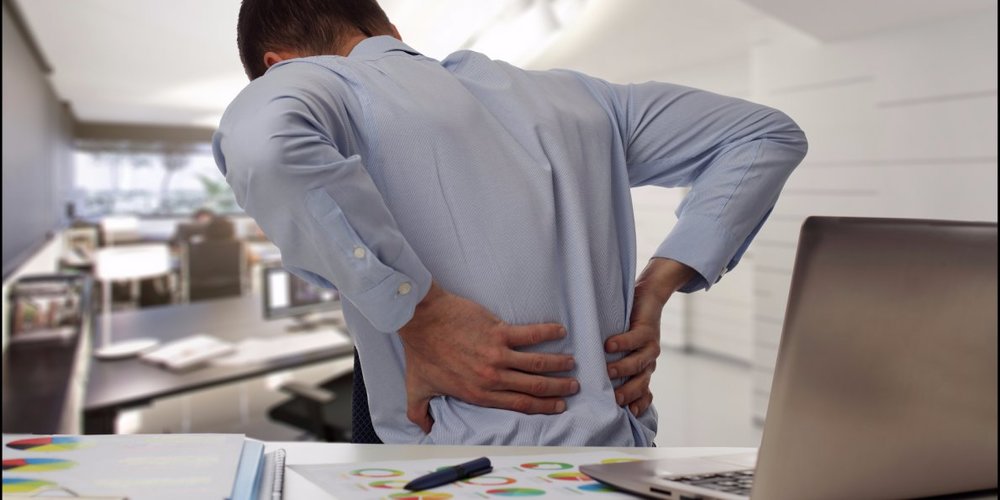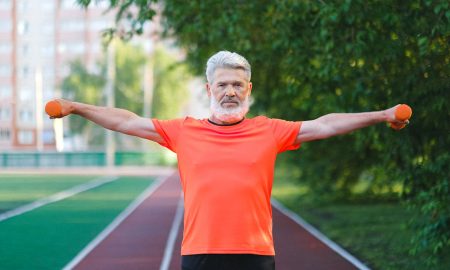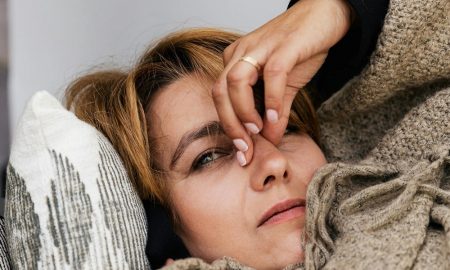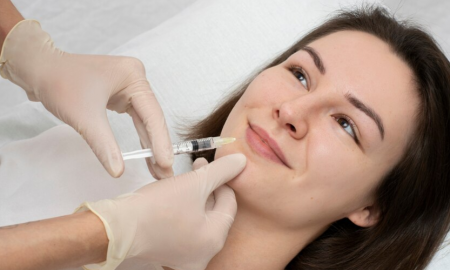
This Everyday Habit Is Bad For Your Heart And Can Shave Years Off Your Life

Are you spending more than 8 hours sitting in your office chair or your comfortable recliner at home watching television? Researchers say that sitting at your desk all day could be extremely bad for your health even if you exercise regularly. Sugary snacks and excessive stress-eating at the office have already been linked to an increased risk of diabetes and obesity but now new studies are showing that there are several other ways your 9-to-5 desk job could slowly be weakening your heart and killing you.
Sitting for Prolonged Periods of Time is Bad for Health

Harmful effects of a sedentary lifestyle go beyond the risk of weight gain and obesity
The health implications of sitting in one place for prolonged periods of time have already been widely known but most of us thought that the disadvantages of desk-bound job could be counterbalanced by incorporating an hour or two of physical activity. Unfortunately, experts say that the harmful effects of a sedentary lifestyle go beyond the risk of weight gain and obesity. Apparently, the more you sit at your desk, the weaker you heart muscles become with time – even with occasional exercise.
This is becoming a serious health issue since a majority of the working population around the world spends more than 8 hours a day sitting in an office. But even after the workday is over, most of us hop into our cars, drive back home only to sit some more in front of the television or a computer screen. In the technologically advanced world that we live in today, laziness has become extremely convenient – but at the cost of our health.
Sitting Linked to High Levels of Troponin

Sitting for prolonged period of time is considered as dangerous as smoking
Studies show that those who spend more than 8 hours a day continuously sitting in one place are at a greater risk of developing heart diseases and type 2 diabetes, and risk is not minimized even with exercise. As the heart progressively gets weaker due to lack of activity, it has to work harder to pump blood through the body exposing you to the risk of heart failure, and eventually, death. But how can a mere act of sitting exert so much pressure on the heart, incapacitating it from giving an adequate response to exertion?
The unclear phenomenon has left the medical society perplexed for a long time until recently, when a few cardiologists found a link between sitting and high levels of troponin in blood. Troponins are proteins that have previously been identified as the danger sign of a dying heart. Cells inside the cardiac muscles produce this protein only when they are injured and patients who have suffered from a heart attack have shown an increased number of troponins in their bloodstream. Doctors often consider high levels of troponin as a sign of damage in cardiac muscles which could eventually lead to heart failure if not treated properly.
Heart Failure, a Direct Result of Prolonged Sitting

Simple changes like taking the stairs instead of the elevator and including small walk breaks after every two hours of sitting at the desk can drastically improve your health.
The groundbreaking discovery that sitting can increase troponin levels in our body was fist published in Circulation as a part of the Dallas Heart Study conducted in the Southwestern Medical Center of University of Texas. The researchers of the study examined the cardiac health of 1,700 people from different ethnic groups through elaborate methods such as blood tests and activity trackers. Most of the participants in the study had desk jobs that required them to sit one place for an extended period of time, whereas some of them already showed signs of a weak heart including shortness of breath and chest pain.
The researchers measured the level of troponins in participants’ blood and tracked their daily activity levels to find a link between the two variables. The results showed that most of the participants who sat at a desk for more than 8 hours showed extremely low levels of physical activity on their trackers. Only a small percentage of the participants got some form of exercise in their daily routine and the more they moved, the lower the troponin level in their blood became. On the other hand, people who spent a significant part of their day sitting, showed higher levels of troponin. Researchers think that heart failure is an indirect result of fat deposition, obesity and insulin resistance which occur due to inactivity.
Maybe including more physical activity in our busy schedule should become the New Year’s Resolution. Simple changes like taking the stairs instead of the elevator and including small walk breaks after every two hours of sitting at the desk can drastically improve your health.
More in Health & Fitness
-
`
How to Build Muscles & Gain Mass After 50
Are you wondering how to build muscle mass after 50? You are not alone. Many people think that hitting the big...
June 20, 2024 -
`
How to Speed Up Your Nose Job Recovery Time
Undergoing a rhinoplasty is an exciting step towards a new appearance, but it comes with a recovery period that requires patience...
June 15, 2024 -
`
Best Tattoo Ideas for Women With Meaning
Are you on the hunt for tattoo ideas for women with meaning? Tattoos are more than just body art; they’re personal...
June 4, 2024 -
`
What Are Actives in Skin Care Products and How Do They Work?
Have you ever sifted through a sea of beauty blogs and stumbled upon the term “actives”? Maybe you’ve seen advice on...
May 31, 2024 -
`
How Long Can Pre Workout Last? Find Out Now!
You lace up your sneakers, pull on your workout gear, and glance at the clock. It’s almost time to hit the...
May 23, 2024 -
`
How Often Should You Get Botox Injections? A Comprehensive Guide
If you’ve ever considered the wonders of Botox, you’re likely familiar with its ability to smooth away those pesky forehead wrinkles...
May 16, 2024 -
`
Why is Dubai’s Popularity Soaring Among Tourists?
Dubai, a name synonymous with extravagance, innovation, and a captivating blend of modern marvels and ancient traditions. This captivating city, nestled...
May 9, 2024 -
`
Maximizing Your Skincare Routine: Learn How to Layer Skincare Products
Navigating the realm of skincare can feel daunting, especially with an array of products to apply. However, fear not! Learning how...
May 1, 2024 -
`
How to Restore Gut Health After Antibiotics – Practical Tips and Strategies
Ever finished a course of antibiotics and felt a rumble in your tummy? You’re not alone. Antibiotics, while crucial for fighting...
April 27, 2024















You must be logged in to post a comment Login